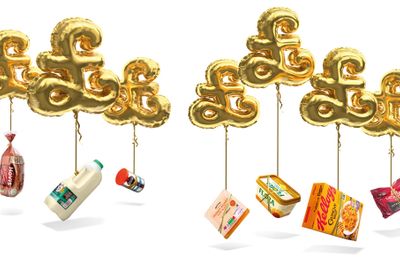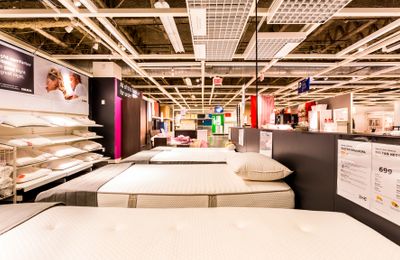Which was the cheapest supermarket in October 2022?

Aldi was the cheapest supermarket in October, according to the latest monthly analysis from Which?.
We compared the prices in a basket of 48 popular grocery items in October. The pricing analysis found that shoppers would have paid £75.79 for the shop at Aldi - that's £1.89 cheaper than at rival Lidl (£77.68).
In the wider analysis – including 148 items across the six 'traditional' supermarkets – we found that Asda was the cheapest supermarket at £348.38 for our trolley.
Read on to find out how your supermarket compares in the analysis.
- Sign up to the free weekly Which? Money newsleter for more news and advice on navigating rising costs.
Cheapest supermarket for a basket of groceries
Every day in October, we checked the price of 48 popular groceries, including Heinz baked beans, milk and tea bags, at the UK's biggest supermarkets to see how they compare.
The table below shows how much our basket cost on average:

Aldi (Aldi.co.uk) was the cheapest overall, with our shop costing £75.79, on average, beating rival discounter Lidl (Lidl.co.uk) by £1.89.
The same shop at Waitrose (Waitrose.com) was £101.17, on average, making it £25.38 more expensive compared to Aldi.
Of the 'big four' supermarkets, Asda (Asda.com) was the cheapest at £84.98.
Of course, price is just one factor when you're deciding which supermarket to shop at. We also survey shoppers on their experiences in terms of product quality, customer service, store experience, online deliveries and a range of other factors, to reveal the best and worst supermarkets each year.
- Find out more: read our guide on how to spend less at the supermarket and watch the video below for more tips from our experts
How do bigger shopping lists compare?
We also compared the cost of a larger trolley of 148 items (the original 48, plus 100 more).
This trolley included a larger number of branded items, such as Andrex toilet paper and Cathedral City cheese. You can’t always find these items in discounter supermarkets, so we haven’t included Aldi or Lidl in this comparison.

Asda cost the least with this trolley of groceries, continuing its streak, which started in January 2020, as the cheapest traditional supermarket. It cost £348.38, on average, for our big trolley shop, beating the next cheapest, Sainsbury's (£355.65), by £7.27.
Waitrose was a whopping £44.56 more expensive than Asda, coming in at £392.94, on average, for the same trolley of goods.
- Find out more: If you need help managing your finances during the cost of living crisis, try our free My Money Health Check tool for personalised money-saving tips.
How Which? compares supermarket prices
We look at the prices of hundreds of grocery items at eight major supermarkets every day throughout the year, using an independent price comparison website.
For each supermarket, we work out the average price for each item across the month, then we add those up to get each store’s average trolley price. To keep things fair, we include special offers, but we don’t count multibuys or loyalty scheme discounts.
Our shopping list includes branded items such as Heinz baked beans and Dolmio sauce, as well as own-brand products such as apples and lettuce. Own-brand items won’t be identical across supermarkets, but we’ve used experts to ensure everything we’ve compared is as similar as possible, based on a number of factors including quality and weight.
- Find out more: supermarket price comparison over time
Supermarkets: inflation latest
Grocery price inflation hit another new peak in the 12 weeks to 2 October, rising to 13.9% according to market analysts Kantar. This is another record high since Kantar began tracking prices in 2008.
Fraser McKevitt, our head of retail and consumer insight, said: ' The cost-of-living crisis is still hitting people hard at the checkouts and this latest data will make tough reading for many.
'Based on our numbers, the average household is facing a £643 jump in their annual grocery bill to £5,265 if they continue to buy the same items. Taking that at a basket level, that’s an extra £3.04 on top of the cost of the average shopping trip last year which was £21.89. '
Sales of supermarket own-label wonky veg were up by 38% for the period, and overall own-label sales increased by 8.1%.
- Find out more: what supermarkets are doing to help with the cost of living








